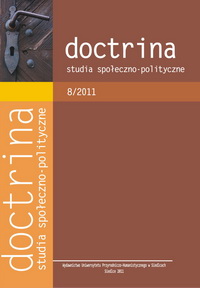Uwarunkowania funkcjonowania NATO i Unii Europejskiej we współczesnym środowisku bezpieczeństwa
Abstract
Trying to diagnose contemporary and future security environment of the NATO and EU one should begin with identifying challenges and goals determining activities of these two organization. Accordin to UN forecast the Word population tends do steadily increase. Demographical changes applies also to Europe as existing social balance would be undermined by growing old citizens, weakening national identity and reluctance to solve global challenges. Climate changes will bring not only global warming but inevitable geopolitical and economic consequences related to territorial borders and right to explore energy resources – oil and gas. The competition around the Arctic will involve a number of states such as US, Canada, Denmark, Norway and Russia. Another threat is the danger of new divisions in Europe resulting from the economic and civilization threats. Deepening the differences arising from such a state of affairs as well as the existing extremes of richness and poverty may bring about an escalation of social dissatisfaction, and as a consequence, internal destabilization of the states. That is the reason why both organization should upport the tendencies towards economic and political integration of Euroatlantic area countries as well as towards the development of active mutually profitable co-operation with the states and regions from beyond particular European camps and institutions. NATO and EU possess a number of tools, political and military instruments that could face and manage crisis situation arising from dramatically changing security environment. Having mentioned above in mind the United States and European Union should enforce its strategic partnership.




